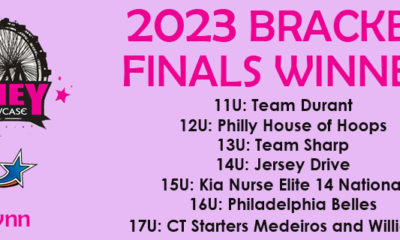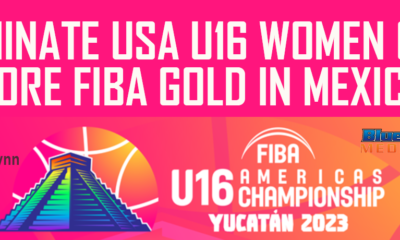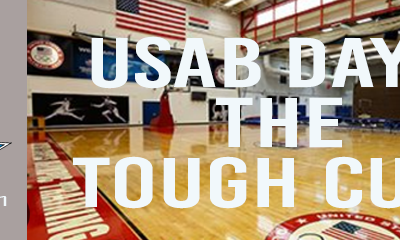
WASHINGTON, D.C.– When USA basketball executive director Jerry Colangelo began successfully resurrecting this country’s senior men’s basketball program from the ashes in 2005, one of the things he quickly realized was it wasn’t only imperative to collect the best available talent, it was also important to establish continuity among the coaching staff.
Colangelo took a risk when he selected a college coach— Mike Krzyzewski of Duke — to shake the 2008 Olympic team out of its malaise in Beijing. Krzyzewski turned out to be a slam dunk, coaching Team U.S.A. to gold medals in China and again in London last summer by successfully managing and motivating a core group of gifted NBA players like Lebron James, Carmelo Anthony and Kobe Bryant. The 66-year old Krzyzewski has a chance to become a permanently sculptured face on this country’s Mt. Rushmore of coaching if Team USA successfully defends its title for a third straight time in Rio.
When FIBA decided to allow professionals to participate in the Olympic men’s basketball competition in 1992 in an effort to glamorize the competition and upgrade the TV ratings, the NBA saw its coaches in a leadership role with college coaches in a support role. The NBA, because of all its money and resources, regulated the college game into the background.
Krzyzewski’s success at the international level has torn down a number of stereotypes about whether college coaches can effectively motivate pro stars and is a refreshing reminder of the teaching that is done on the college level. It is a refreshing turn back the clock moment.
It is also a reminder of why U.S.A. basketball continues having the lions’ share of its coaches come from the college and high school ranks. In the 60’s and 70’s when the NBA was evolving, the game kicked into fast forward and reached its high water mark because of the college coaches who migrated to the NBA.
Krzyzewski has opened the door for younger coaches to audition for spots on future Olympic coaching staffs.
USA basketball is attempting to duplicate the success Krzyzewski and his assistant, fellow Hall of Fame inductee Jim Boeheim of Syracuse experienced at the Olympics at the young age groups by plugging younger college coaches like Billy Donovan of Florida into key positions on its U17, U18 and U19 teams. Donovan is the head coach of the American U19 team that will begin competition today in the World championships in Prague with a first round game against Ivory Coast. His staff includes Shaka Smart of VCU and Tony Bennett of Virginia, who will compliment Donovan’s full court, up-tempo philosophy with havoc defense and halfcourt patience.
The 46-year old Donovan is one of a handful of college coaches and teachers like Bill Self of Kansas, Tom Izzo of Michigan State, Fred Hoiberg of Iowa State, Mark Few of Gonzaga and John Thompson III of Georgetown with a chance to play a huge role– maybe even become this country’s next head Olympic coach– in the 2020 games, which still most likely be held in Istanbul.
Donovan has proven to be a great teacher of the game, winning two consecutive national championships in 2006 and 2007 and has learned from Rick Pitino, one of the great minds in the game, as an undergraduate at Providence and later as an assistant at Kentucky. He has also had success on the international level, coaching the U.S. to a 5-0 record and a gold medal in the FIBA Americas qualifying tournament.
But he is also under a giant microscope and a huge amount of pressure.
It is a tremendous responsibility, keeping America in the forefront of international basketball. But we should be past the stage where how America does in every international competition becomes a referendum on whether a college coach should be considered for the Olympic head coaching job since there are no guarantees an NBA coach could have won against improved global competition.
Until Larry Brown, who lost 10 players from this country’s 2003 FIBA Americas qualifying gold medal team and struggled to a bronze medal finish in the Athens games the next year, Krzyzewski, who has a 63-1 record in international competition, had the benefit of coaching the best group of players since the 1992 Dream team.
Donovan will not have that luxury in the U19s where Croatia and Spain are expected to have a full complement of players and every top tier team in Europe has multiple players who can shoot the three. He will rely heavily on players like Oklahoma State 6-4 sophomore point guard Marcus Smart, a candidate for the 2014 Player of the Year; and 6-11 Jahlil Okafor from Whitney Young High School in Chicago, the MVP of the 17U gold medal team last year.
“The one thing this team has to understand is we not going to be a great three point shooting team,” Donovan said. “Last year, when we won the 18s, I think we shot something like 18 percent.
“But where we won was we was we turned people over, we offensive rebounded and we got out in transition. The one thing you have to look at is we’re going to go after teams that have been together for a couple years and they are going to be very cohesive at the offensive end of the floor.
“What we’ve got to understand is it’s not so much if we can make threes, we’ve got to understand how to stop them. During the last cycle, when we lost to Russia in the U19 Worlds, they made something like 17 threes against us. That can’t happen. We scrimmaged against Air Force before we came here. We gave up 10 threes. I tried to emphasize that to this team.
”The thing I like about our team is that from a defensive standpoint, we can switch everything out. We’re long and versatile and can put a lot of guys in multiple positions. I just have to get them to understand they can’t jump through the air, foul three point shooters. They have to communicate and get out on shooters.
“Are we going to shoot it like some of these better European teams? Probably not, but if we can stop that and neutralize then we can take away a big part of what they do.”
Donovan is a quick study. He must be sure his players– six who played together on his U18 team last year–master the 24 second clock shot and understand that there is no offensive goal tending as well as the fact that the game is played in quarters, not halves.
“This has been rejuvenating for me,” Donovan said. “When you see guys like Magic and Bird, watch the Dream team and these guys, there a trickle down effect with the younger players. And that’s what they’re trying to do with the coaches in keeping some of them around.”
Dick Weiss is a sportswriter and sports columnist who has covered college football and college and professional basketball for the Philadelphia Daiily News and the New York Daily News for 40 years. He has also co-written seven books with Rick Pitino, John Calipari, Dick Vitale and authored a tribute book on Duke coach Mike Krzyzewski.
Weiss is the past president of the U.S. Basketball Writers’ Association and the Football Writers’ Association, has received the Curt Gowdy award for outstanding contributions to basketball from the Naismith Hall of Fame and the Burt McGrane award for outstanding contributions to college football from the Football Writers Association and the College Football Hall of Fame.
He is currently covering top college events for the Daily News, writing columns for Basketball Times, George Raveling’s basketball web site and now covering key international and USA Basketball events for Blue Star Media.
Mike Flynn is owner and operator of Blue Star Basketball and U.S. Junior Nationals. He is a National Evaluator and publishes the Blue Star Report which ranks the top 100 high school girls basketball players in the nation. He also serves as Secretary of the Middle Atlantic District AAU, National Chair for AAU Lacrosse, Consultant to Gatorade for girls basketball, member of the McDonald's All–American selection committee, & Consultant for Nike Global Basketball.

Latest Articles
-


Christopher Lawlor
/ 1 day agoSELECTION SATURDAY: USA Basketball U18 Women’s Team is named for AmeriCup tipping on June 17 in Colombia
COLORADO SPRINGS, Colo. – A dozen of the most talented women’s basketball players from...
-
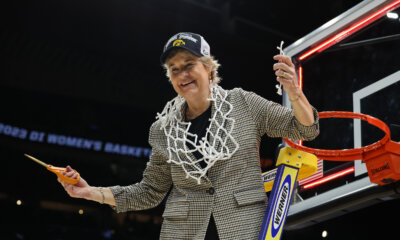

Christopher Lawlor
/ 7 days agoBREAKING: Lisa Bluder steps down as Iowa women’s head coach after leading Hawkeyes to back-to-back Final Fours; Jan Jensen inherits position
IOWA CITY, Iowa – In a shock to some, Iowa women’s head coach Lisa...
-
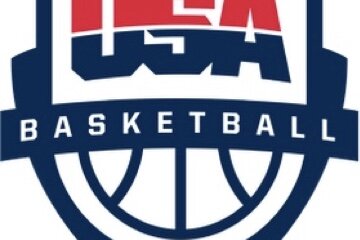

Christopher Lawlor
/ 1 week agoTwenty-Six Athletes Expected to Participate in USA Basketball Women’s U18 National Team Trials that begin on May 15
COLORADO SPRINGS, Colo. — USA Basketball announced 26 athletes expected to participate in the...
-
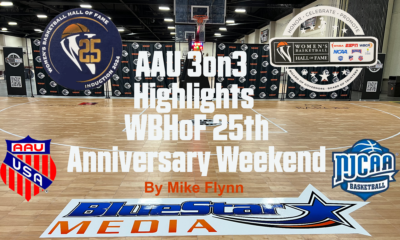

Basketball
/ 2 weeks agoAAU 3on3 Highlights WBHoF 25th Anniversary Weekend
KNOXVILLE – The 25th anniversary weekend celebration of the Women’s Basketball Hall of Fame...
By Mike Flynn
